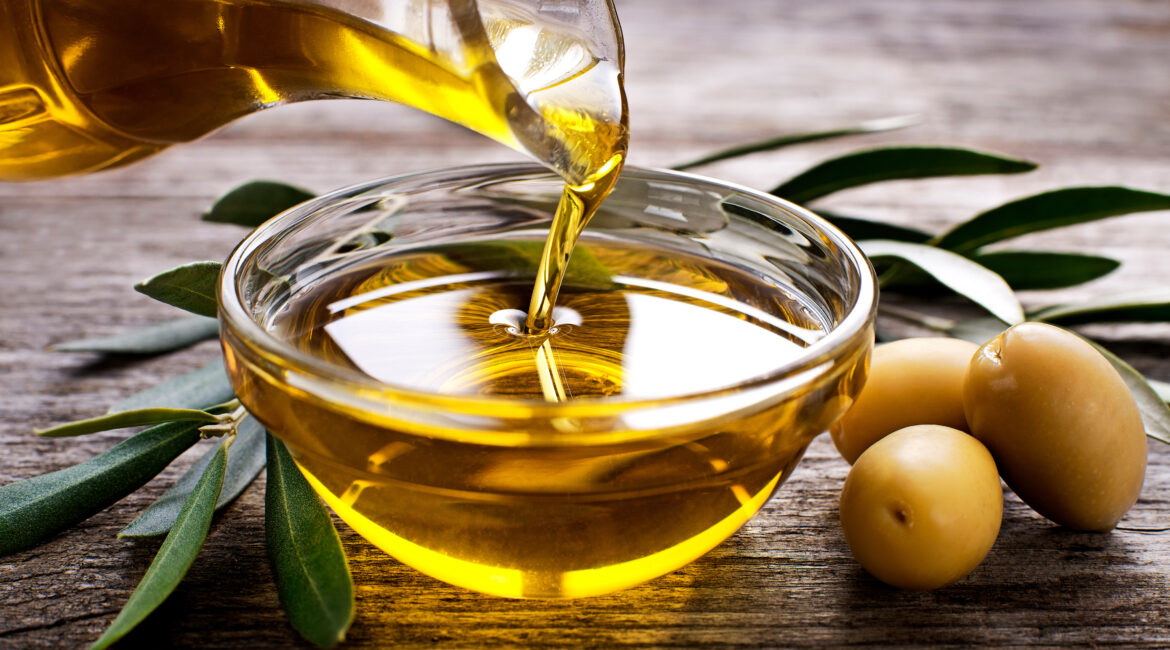If you are conscious about your diet, you probably try to use cooking oil in moderate amounts, especially if you eat foods that are already rich in fats. However, apart from limiting the amount of used oil, you should also consider its nutritional value and how it affects your health.
Apart from animal oils (fat), oil can be extracted from many different plants and plant parts. That’s why there are so many different cooking oils available on the market. Depending on their source and molecular structure, some oils are healthier than others.
If you want to learn more about different types of cooking oils and find the best one, this article is perfect for you. It focuses mostly on plant-derived cooking oils, but it also touches upon oils sourced from animals.
But first, let’s see some basic characteristics of cooking oils in general, and how these characteristics determine whether a specific type of oil is good or bad.
GENERAL COOKING OIL CHARACTERISTICS
Since the dawn of human civilization, oil has been used for cooking food. Cooking oil adds flavor to every meal while also speeding up the cooking process and ensuring that the food is cooked more evenly.
Additionally, oil is a great flavor addition even to meals that don’t need to be cooked. It is easy to see why oil was like a liquid gold throughout history. However, its significance is much larger than just adding flavor and helping with the cooking process.
Oils also come with a certain nutritional value. They contain saturated/unsaturated fats, trans fats, fatty acids, and significant amounts of vitamin E. However, not every type of oil contains the same nutrients or the same amount of nutrients.
Also, different oil compounds have different impacts on our health. Some of these compounds are good for us, while others are not. Additionally, some oils can stand the heat much better because they have a higher smoke point.
All these characteristics are dictating the quality of a certain oil. High-quality oils should be tasty and with lots of nutrients that are good for our health. So, which oils are the best? Which ones are the worst?
In general, some of the best cooking oils out there are these:
- Olive oil
- Flaxseed oil
- Avocado oil
- High- and mid-oleic sunflower oil
- Almond oil
On the other side, try to avoid these oils whenever possible:
- Sesame oil
- Coconut oil
- Palm oil
- Corn oil
- Canola oil
Keep in mind that the quality of a certain oil might depend on the manufacturer. For example, we ranked olive oil as one of the best oils out there, but certain companies use the lowest-grade olives and production processes to produce oil. Such oil, even though it comes from olives, can’t be any good.
Still, the point of this article isn’t to discuss different oil companies and brands. We will tell you everything you need to know about these oils, regardless of production and other factors that could affect their quality.
BEST TO WORST OILS
OLIVE OIL
If you needed to find one thing that cooks and nutritionists all over the world could agree upon, it’s the fact that olive oil is the best cooking oil. This oil is not only extremely versatile, but it is also very healthy – especially the extra-virgin kind.
Olive oil is full of unsaturated fats and fatty acids. It reduces the bad cholesterol and increases the good cholesterol. Additional health benefits from consuming olive oil include lower blood pressure, anti-inflammatory effects, and overall improved heart health.
Still, keep in mind that olive oil has a relatively low smoke point, which means you should use it to cook at low to moderate temperatures. You can also use it as a nice addition to salad and salad dressings.
The flavor profile of olive oil can be described as buttery, grassy, somewhat bitter, and even spicy.
FLAXSEED OIL
Another extremely healthy oil is the flaxseed oil. Flax seeds are known for their many health benefits, and oil derived from these seeds is just as good. Flaxseed oil is packed with Omega-3 fatty acids, which makes it very good for your heart and cardiovascular system.
In particular, flaxseed oil contains high levels of ALA – alpha-linolenic acid, a type of Omega-3 fatty acid. Flaxseed oil is also great for digestion, as well as for your skin health. Some researchers even believe that flaxseed oil could be a key to cancer prevention.
However, flaxseed oil has an extremely low smoke point, much lower than olive oil. You shouldn’t use it for cooking or otherwise expose it to higher temperatures. Apart from the fact that it will start burning, flaxseed oil can also form some harmful components.
Flaxseed oil has a mild, nutty flavor, but sometimes it can be a bit bitter and pungent.
AVOCADO OIL
Do you like that nutty and buttery flavor of avocado fruits? Then you should try avocado oil. Since avocado fruits are so rich in oils, it makes no wonder that these oils can be extracted and used for cooking.
Avocado oil comes with several health benefits. It is rich in unsaturated fats and fatty acids, which makes it good for your cardiovascular system. Additionally, avocado oil and its nutrients can potentially reduce your risk of dementia. Vitamins A, D, E, and K are commonly found in avocado oil, and they are great for your eyes.
Unlike most oils from this list, avocado oil has a high smoke point, which makes it great for cooking. However, it can cause allergies, especially among people with latex allergies, who should avoid this oil completely. Also, avocado oil is rather expensive, and many commercially sold avocado oils are rancid. Keep that in mind when purchasing it.
When it comes to its flavor, avocado oil tastes like a more subtle version of avocado fruit, which has an already subtle and mild buttery and nutty flavor.
HIGH- AND MID-OLEIC SUNFLOWER OIL
Sunflower oil is another highly demanded cooking oil due to its mild taste and high smoke point. This makes it perfect for cooking various meals, even at high temperatures. Depending on its chemical makeup, sunflower oil can be good for your health.
For example, high- and mid-oleic sunflower oils are rich in monounsaturated fats, which are good for your heart. Sunflower oil is also rich in vitamins E and K. Vitamin E is important for your brain health, while vitamin K protects your bones and plays a vital role in blood coagulation.
On the other hand, keep in mind that sunflower oil has a relatively high calorie count and can stimulate excessive weight gain. Even though this oil has a high smoke point, which makes it perfect for deep frying and cooking at high temperatures, sunflower oil produces lots of aldehydes, chemical compounds that increase the risk of cancer.
Sunflower oil has a mild and subtle flavor with slightly nutty undertones.
ALMOND OIL
Do you like almonds and its products, such as marzipan? Who can blame you, as this nut is so delicious in all its forms? But did you know that you could use refined almond oil for cooking? Yes, this oil has a high smoke point, which makes it a good choice for cooking at high temperatures.
Almond oil is rich in vitamin E, unsaturated fats, and fatty acids. As such, it is good for your heart and blood sugar, as well as for your skin, nails, and hair. Vitamin E is also a powerful antioxidant, protecting your cells from cancer-causing free radicals.
However, if you buy unrefined (virgin) almond oil, you shouldn’t use it for cooking at high temperatures because it contains organic components that could burn. Instead, use it for salads or as a beauty product. Avoid almond oil if you have a tree nut allergy, during pregnancy, and if you are on certain medication.
The flavor profile of almond oil could be described as sweet, rich, and slightly nutty.
SESAME OIL
Sesame oil is particularly popular in Asia, being a staple of Asian cuisine(s). It has a relatively high smoke point, which makes it a good base for cooking various meals. Additionally, this cooking oil comes with several health benefits.
Sesame oil has shown some positive effects on cardiovascular health, memory, and brain function. It can also reduce symptoms of arthritis, gingivitis, and diabetes. It lowers cholesterol levels and protects cells against free radicals.
However, sesame oil consumption can also have some negative side effects. First of all, this oil is packed with calories and can cause unwanted weight gain. Additionally, it increases the risk of colon cancer. People who are on medication for high blood pressure or diabetes should avoid sesame oil because it lowers blood pressure and blood sugar levels, and in combination with meds, it can lower it too much.
Unlike many oils from this list, sesame oil has a very strong and distinct flavor, best described as a combination of nutty and earthy.
COCONUT OIL
There has been a lot of debate about whether coconut oil is good or bad for you. It has some health benefits, mostly for your skin, nails, and hair. Additionally, coconut oil has anti-inflammatory, antimicrobial, and antioxidant effects on your body.
Still, coconut oil tends to break down at high temperatures, which makes it a bad option for cooking. Also, coconut oil is full of both saturated and unsaturated fats, and it will increase your cholesterol, both good and bad. It also increases the risk of heart disease and stroke.
When it comes to its flavor, coconut oil tastes like an oilier and more subtle version of coconut fruit, which is great if you like coconuts.
PALM OIL
This oil is mostly used for cooking in developing countries, and the chances are you won’t be able to find it in US stores. However, palm oil is found as an ingredient in roughly 50% of packaged food products, and you are still eating it, even if you don’t use it in cooking.
Unfortunately, palm oil, especially the one used in the food industry, isn’t very good for you. While it contains vitamins A and E, which are good for your skin and brain health, the benefits of this oil end there. Most of the palm oil is made of saturated fats, and as such, this oil increases your cholesterol levels and causes serious cardiovascular issues.
Palm oil has a savory, earthy, but still mild and subtle flavor.
CORN OIL
Corn oil is widely used in cooking, especially for frying. However, that doesn’t mean it is any good. Even though it contains vitamin E – a known antioxidant, its side effects overpower any potential health benefits.
For example, corn oil is rich in Omega-6 fatty acids, which are rather unhealthy in excessive amounts and can have pro-inflammation effects on your organism. This oil is highly refined, and it easily becomes oxidized, making it a breeding ground for free radicals.
Also, corn oil is often extracted from GMO corn, which brings even more potential side effects. When heated, corn oil also produces acrylamide, an antinutrient that can cause serious health issues such as hormonal issues, decreased muscle function, neurological issues, and cancer.
Surprisingly enough, corn oil has a neutral and practically unnoticeable flavor.
CANOLA OIL
Canola oil is deservedly the worst choice on our list. Even though this oil contains unsaturated fats and vitamins E and K, it is far from being healthy. First of all, it contains high levels of Omega-6 fatty acids, and we already explained why they are so bad.
Additionally, canola oil is usually made from GMO canola plants that were genetically modified to be herbicide-resistant. However, this resistance came at the expense of oil quality. Canola oil is rich in trans fats, which are basically the worst fats.
This oil will also promote any inflammation in your body, and it has negative effects on your memory and overall brain function. Oftentimes, canola oil has residual impurities, which remain after the extraction and refining process. These impurities include pesticides and other harmful and cancerous chemicals.
Canola oil has a mild flavor with a tiny hint of buttery flavor note.
WHAT ABOUT ANIMAL AND FISH OILS?
After reading all about plant-based oils, you probably wonder whether you should try animal or even fish oils for cooking. First of all, fish oil will degrade if you expose it to heat, even if it is low. You can use it for salads or as a dietary supplement but don’t heat it.
Then, there are animal fats. Pork lard, beef/duck tallow, butter, and ghee are only some of the animal fats used for cooking. Historically, these fats have been used for cooking just as long as plant oils, maybe even longer.
Depending on the type, animal fats can bring some health benefits, and you shouldn’t completely write them off. However, keep in mind that animal fats are usually rich in saturated and trans fats, which are bad for your health.
Maybe we will write another article that will focus on animal fats, but until then, we encourage you to do further research and decide whether you want to include these fats in your diet.
CONCLUSION
A drizzle of cooking oil can make any dish tastier and more enjoyable, but is it good for you? There are many types of plant-based cooking oils out there, and we ranked them from best to worst.
During this ranking process, we tried to elaborate on the health benefits and bad side effects of each oil. We also briefly mentioned the flavors of each oil, hoping to help you decide which one is the best for you.
Olive oil, especially the extra-virgin one, is definitely the best cooking oil. Corn and canola oil are almost equally bad, but we decided to place canola in last place. In the end, it is up to you to decide which oil to use, but try to think of your health when making that decision!




